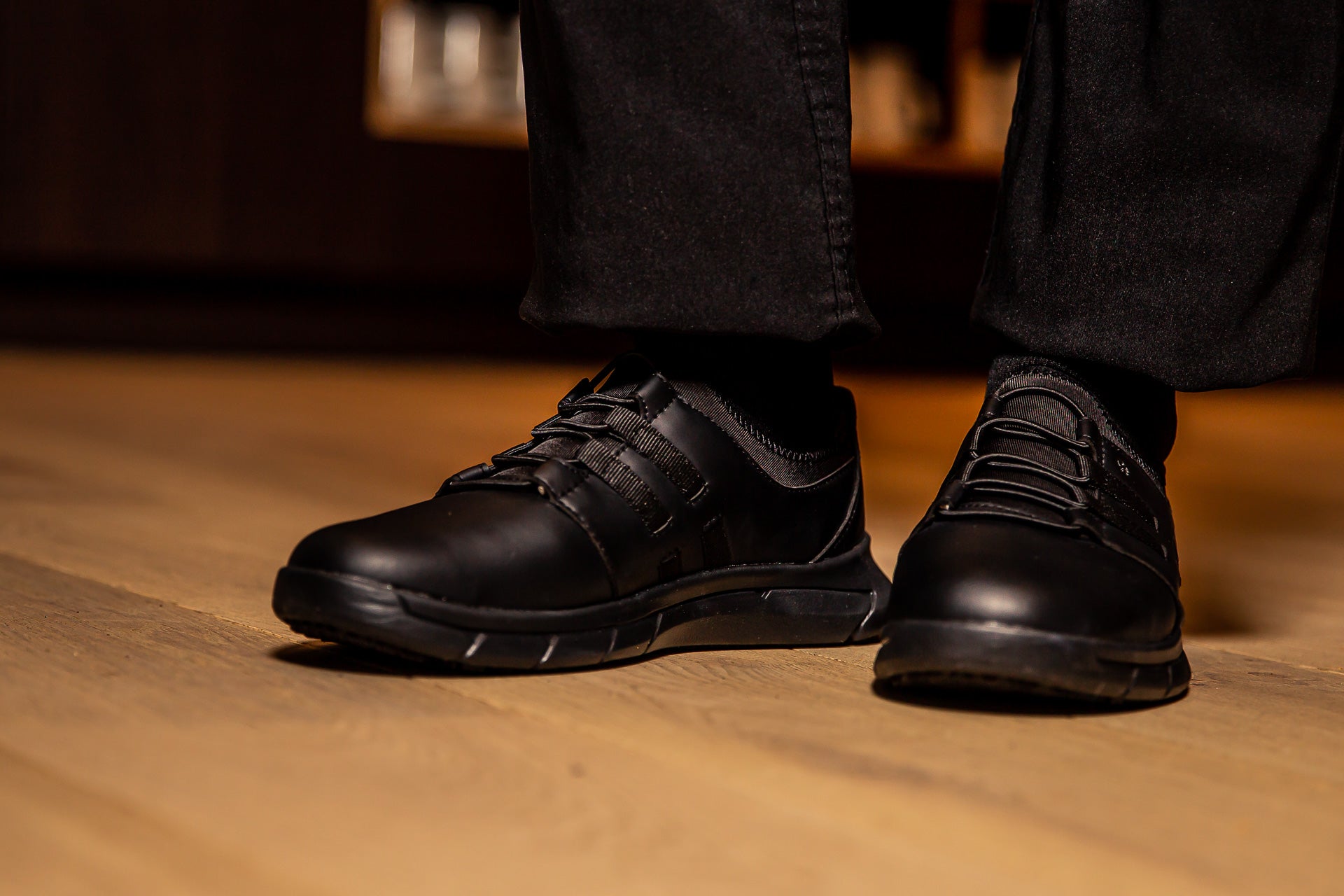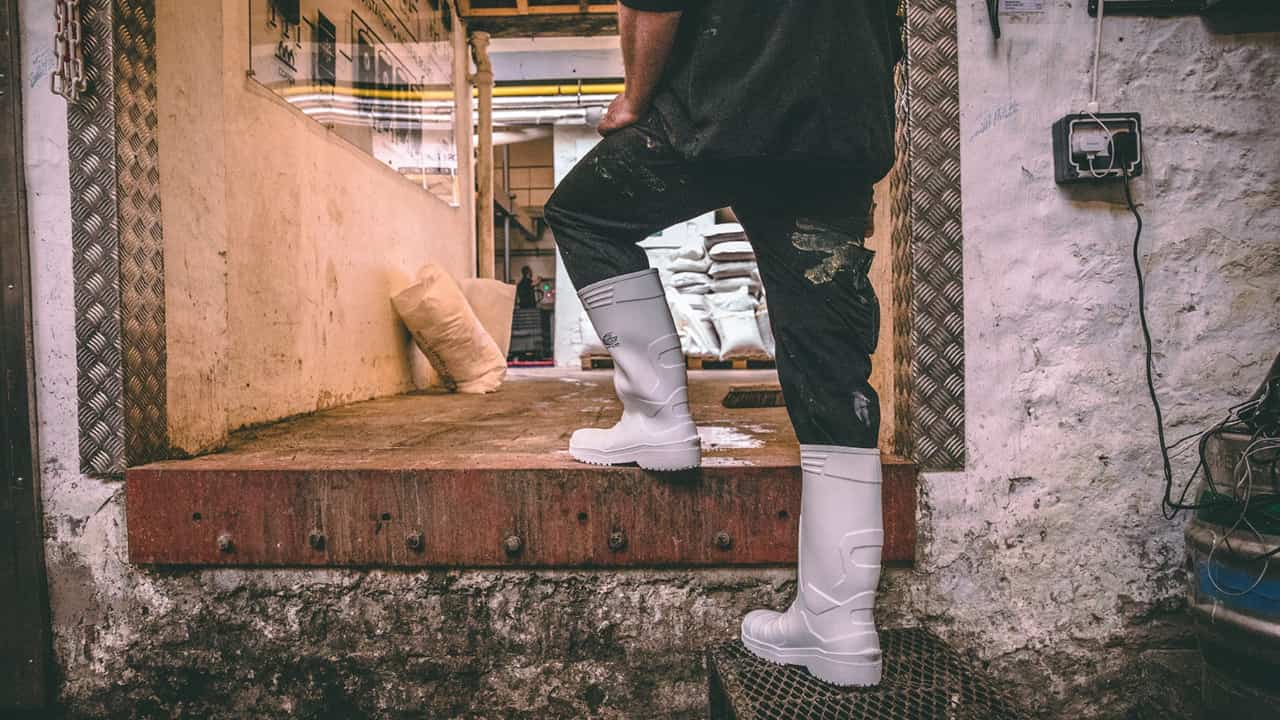One of the biggest pains working as a nurse is the sore feet and aching legs after a shift. When you're on your feet for most of your shift, it puts a lot of stress on your limbs. There are several reasons that can be directly responsible for causing your aching legs after a long shift.
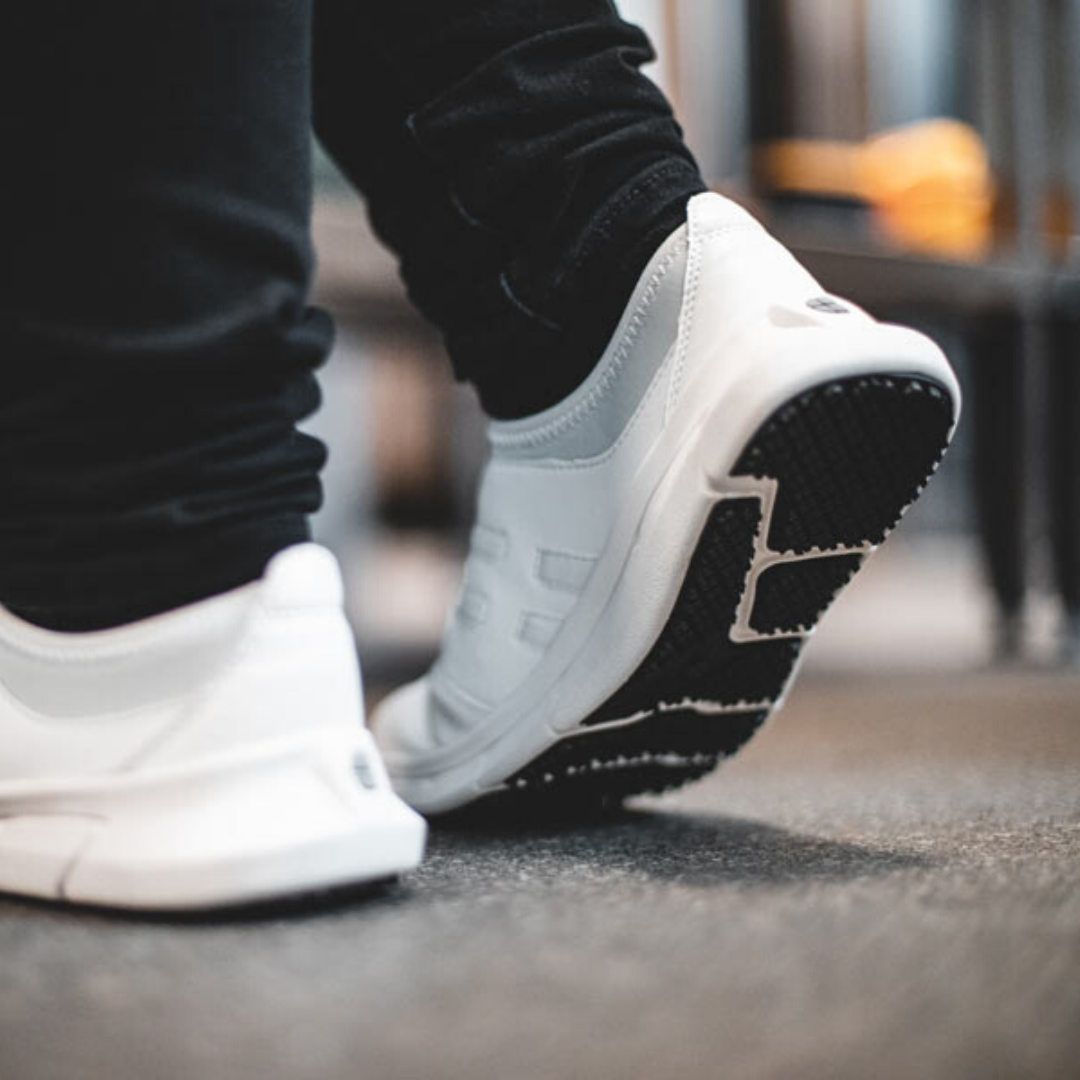
- Walking for hours with no rest breaks
- Standing still for long periods of time
- Not sleeping properly
- Carrying and assisting patients
- Wearing the wrong shoes
Walking for hours with no rest breaks
Having little or no rest breaks during a 12-hour+ shift can be very harmful for your feet and legs. While you might not be running around the hospital, just walking around the ward, checking on patients can strain your limbs. Currently, there are more pressures on nurses so it's hard to find time to sit down. Just finding time to go to the toilet can be difficult.
Make sure you have breaks where you can sit down somewhere quiet and not be disturbed by patients. If you're struggling to find time to have a break so you can rest, speak to your manager. You are entitled to your rest breaks. Not having them can be harmful to your health in the long term.
Standing still for long periods of time
You wouldn't think that standing still for several hours at a time can be harmful but it can. Standing in a surgery for over three hours can put immense pressure on your ankles and feet. It is the same if you have aching legs after a 12 hour shift because you've been standing for most of it.
When possible, exercise your legs. There are exercises you can do while standing. Rolling your ankles, standing on the balls of your feet and other types of stretches can alleviate stress in your legs and improve circulation.
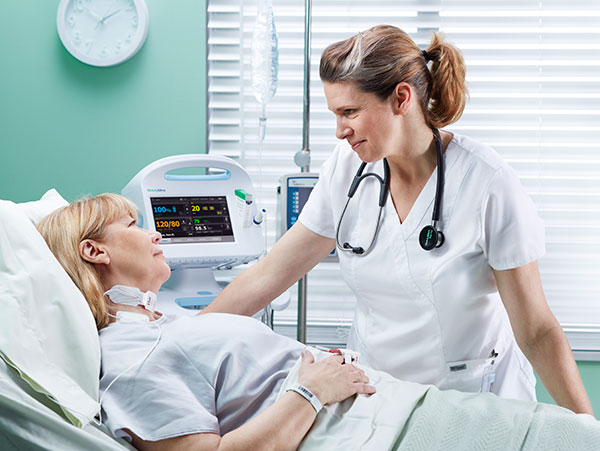
Not sleeping properly
Sleep is an incredible healer. Having a good night's sleep when you've got the first signs of a cold can help you wake up feeling refreshed and cold-free. Sleeping is also excellent for resting your limbs. So if you're finding it difficult to sleep without being disturbed then this could be responsible for your aching legs.
Wearing ear plugs and an eye mask to bed can improve your sleep and decrease the chances of it being disrupted.
Carrying and assisting patients
Nurses are more vulnerable to musculoskeletal injuries (like slipped disks) because they have to regularly lift equipment and patients. If a patient falls out of bed or needs turning, you and other nurses will have to work together but this can still put a high amount of strain on your back and legs.
When carrying patients, always make sure you avoid straining your back otherwise this will cause problems for your legs too. Bend your knees and carry the weight of your patient in your arms, this reduces putting too much stress on your spine. It's also important to ask for other nurses to help you when a patient has fallen.
Wearing the wrong shoes
One of the biggest causes of aching legs after a 12 hour shift, is wearing the wrong shoes to work. Although you may be tempted to wear your favourite trainers, it's likely they're not designed for your job responsibilities.
As a nurse, you need shoes that have reliable support, comfortable insoles and efficient slip-resistant grip. Our choice of healthcare shoes have everything you need when working as a nurse and help to protect you from sore aches and pains.
The Old School Low Rider IV is the ideal shoe for nurses that are on their feet for most of their shifts. Its got extra cushioning, a removable insole and TripGuard along with the Shoes For Crews Slip-Resistant Outsole.
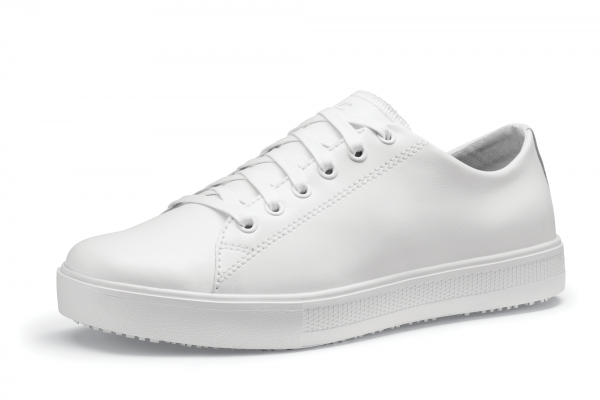 Old School Low Rider IV slip-resistant iconic style
Old School Low Rider IV slip-resistant iconic style
Visit our shop to see our slip-resistant healthcare shoes:
Are your feet and legs sore after a 12-hour shift? Our free guide can help you find the best shoes for work.







